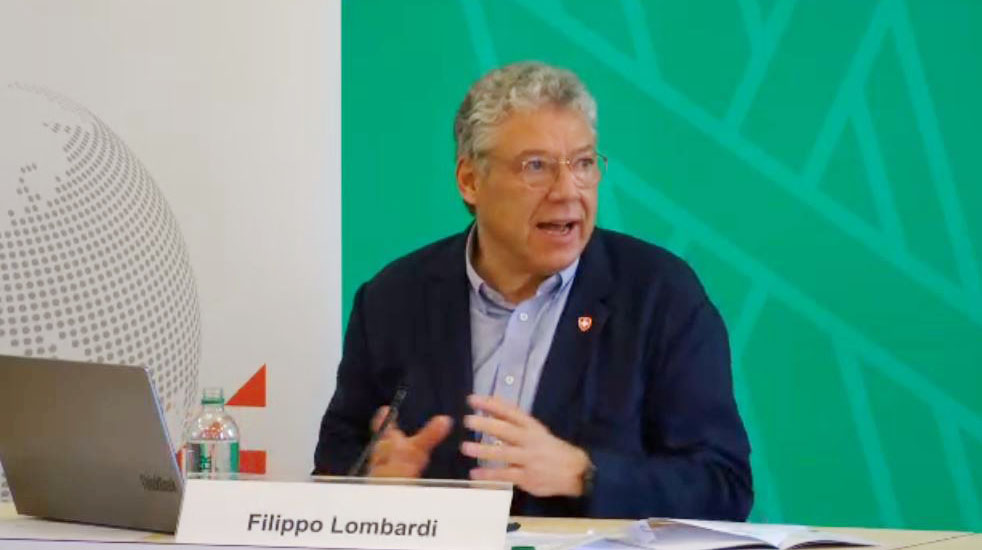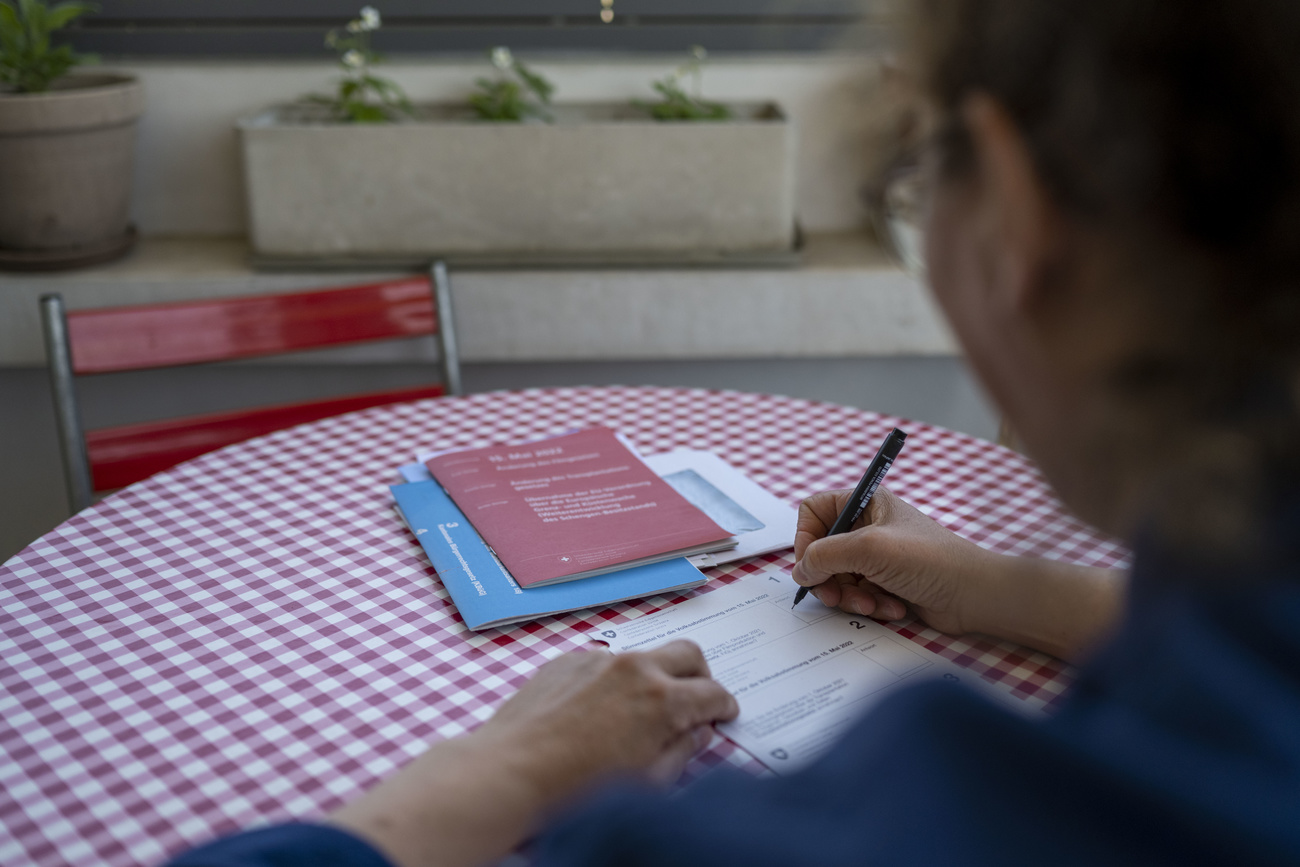Swiss Abroad Congress: ‘e-voting isn’t enough’

The political involvement of the diaspora is taking central stage as the Congress of the Swiss Abroad 2023 kicks off in St Gallen. Beyond e-voting, the community wants more efforts by authorities to promote participation.
“The government has given us a little gift,” said Filippo Lombardi at a press conference on Thursday before the congress.
Lombardi, the president of the Organisation of the Swiss Abroad (OSA), was referring to Wednesday’s decision by ministers authorising three cantons to carry out an e-voting trial during October’s federal elections.
For the OSA the decision is a step forward on a path marked by setbacks in recent years. E-voting – a core issue for the diaspora – only came back on the agenda in Bern this year after efforts by the Swiss Post and the Federal Chancellery – it had previously been side-lined due to cost and security concerns.
‘More voting channels, more security’
Benedikt von Spyk, the head of the chancellery in St Gallen, said at the press conference that the government’s decision was “very heartening”. He said a previous e-voting trial during votes on June 18 had resulted in a 70% decrease in late ballots.

Von Spyk says the plan is to now quickly expand the scope of the e-voting trial to include more cantons such as Graubünden. Lombardi likewise spoke of a “second wave” of efforts to push the idea further along.
More trials, more resistance
But such progress also invites pushback. “The wider the trial, the greater the risk,” says Jorgo Ananiadis, president of the Pirate Party – a politically marginal but technologically savvy group of hackers and cyber-experts.
Just a few hours before the OSA press conference, the Pirate Party wrote in a media release that it was “appalled” about the further roll-out of e-voting trials. “There are no codes which do not contain mistakes,” says Ananiadis. “Current data leaks in the federal administration are symptomatic of an underestimation of risks.”
Already on Wednesday another group, the Swiss Freedom Movement, had responded by launching a people’s initiative – “for a secure vote and election” – calling for a ban on the use of online voting.
‘E-voting isn’t enough’
For Benedikt von Spyk, there is no cause for concern. Hackers were not able to crack the new e-voting system during tests, he said.
However, one problem remains: the turnout rate of the Swiss Abroad is chronically low, about half as high as that for Swiss residents. “E-voting is not enough to increase participation,” says OSA director Ariane Rustichelli. Many emigrants deliberately stay away from Swiss politics, while for others the barriers to participation are simply too high.
Recognition within the community
Two members of the Council of the Swiss Abroad have now decided to tackle this problem: Carmen Trochsler from Australia and Antoine Belaieff from Canada. They say it’s important to note that migration patterns have changed: stays abroad are increasingly seen as temporary situations before a return home to Switzerland, they say.
In such cases, “you vote because you continue to feel connected to and concerned about Switzerland,” Trochsler says.

She learned this through conversations in two workshops which the OSA ran with members this year. Owning property back in the homeland, or having business links to Switzerland, also emerged from the talks as motivating – and legitimating – factors for a desire to participate in Swiss politics.
Belaieff however talks about hurdles such as high postal expenses and delays. Getting onto the electoral register is also a stumbling block for many, and a sheer turn-off for some. Access needs to be simplified, Belaieff says; authorities could also make it standard practice to include an invitation to register as part of all communications carried out with citizens abroad.
Participation plan
Quite a few workshop participants also mentioned that it was difficult to get solid information about vote issues: easily understandable and easily accessible information is needed, they say – without for example paywalls.
Such findings have however gone largely unnoticed by the government in Bern and the Swiss-resident population. This is why the OSA, the lobby group of the Swiss Abroad, has a new demand: it wants the improvement and promotion of political participation to be anchored in law.

In concrete terms, this would involve producing an annual report containing a detailed analysis of the participation of Swiss citizens abroad. The OSA is likely to present this idea via its parliamentary members to the House of Representatives in the near future.
“Again and again we talk about direct democracy being essential to our identity,” says Belaieff. For him, it’s therefore “strange that nobody takes responsibility to oversee the health of this democracy”.
Translated from German by Domhnall O’Sullivan

In compliance with the JTI standards
More: SWI swissinfo.ch certified by the Journalism Trust Initiative













You can find an overview of ongoing debates with our journalists here . Please join us!
If you want to start a conversation about a topic raised in this article or want to report factual errors, email us at english@swissinfo.ch.